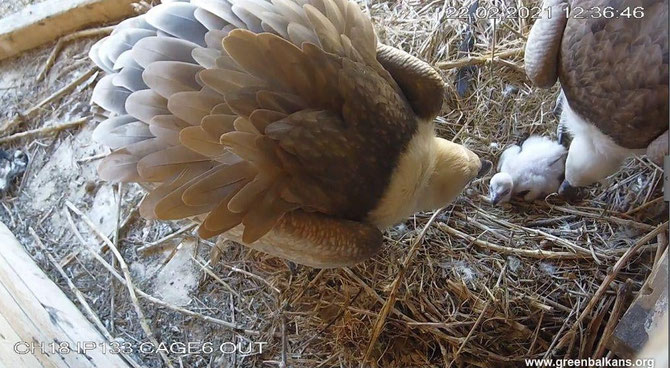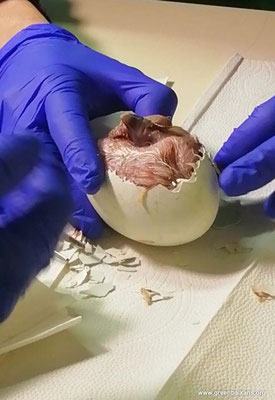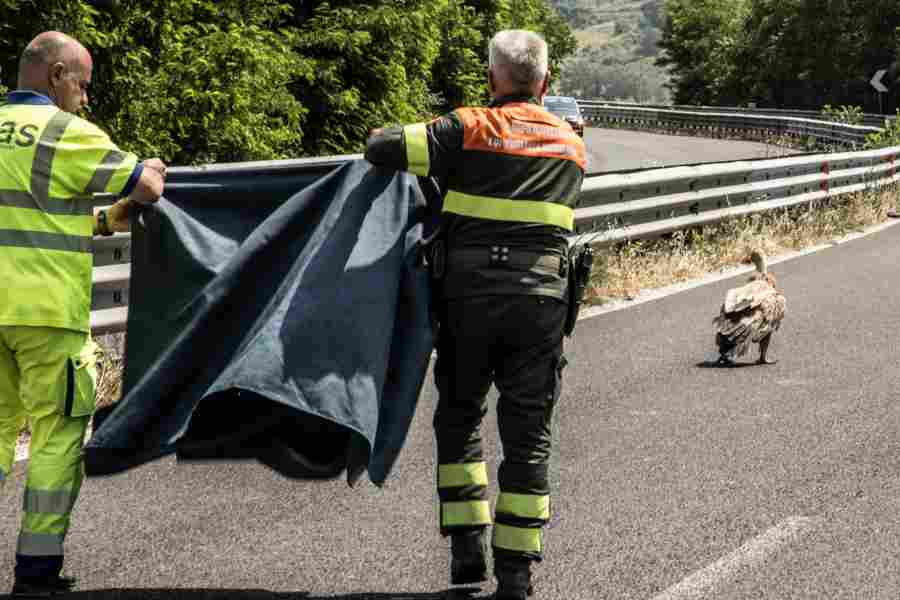
Our partners at the Green Balkans welcomed the first captive-bred Griffon Vulture chick of the season. This little chick spent its early days in the incubator and was then reunited with its parents in the nest. If everything goes according to plan, this young Griffon Vulture will be released into the Bulgarian wild and join the local reintroduced population in the coming months!
Breeding season got off to an early start

The breeding season of the Griffon Vulture pair at Green Balkans’ Wildlife Rehabilitation and Breeding Centre started quite early. The birds have been mating for more than a month and were mainly busy building the nest. Then, on Christmas Eve, the pair laid the first Griffon Vulture egg of the new breeding season at the Centre. After incubating their clutch for a few days, the staff removed the egg to encourage the pair to lay a second one to help secure the breeding success in the case the first egg was infertile.
Hand-rearing for the first week
Thankfully, the egg was fertile, and after 54 days of artificial incubation, the Griffon Vulture managed to crack the egg and, with a little help, hatched on 16 February 2021. From the second day, the chick was already feeding and resting warmly in the incubator. Newly hatched chicks are most vulnerable in their first days of life, especially during cold winter months in nature. That’s why the staff kept the baby vulture indoors for one week before returning it to its parents, who were incubating the second egg they laid at the time!
Reuniting the Griffon Vulture chick with its parents

The little Griffon Vulture spent one week being hand-reared, allowing it to develop well and gain weight while keeping human interactions at a minimum. Then, one week after hatching, the staff reunited the little Griffon Vulture with its parents! When they introduced the chick in the nest, the team took this opportunity to remove the second egg to undergo the same artificial incubation process, hopefully with the same success.
Now, the parents are naturally rearing the chick, which will allow the little one to behave like a wild vulture once it grows up. Therefore, allowing the Vultures Back To LIFE team to eventually release it into the wild, helping boost Bulgaria’s local population!
Vultures Back To LIFE

Led by the wildlife conservation charity Green Balkans, with activities also implemented by the Fund for Wild Flora and Fauna, and bringing together partners from Bulgaria, Spain and Germany, Vultures Back to LIFE aims to reintroduce the cinereous or Eurasian black vulture to Bulgaria. The team will transfer and release around 60 birds, some from captive-breeding, but mostly coming from wildlife rehabilitation centers in Extremadura (Spain) into the wild in Bulgaria as well as creating supplementary feeding stations and improving populations of wild herbivores, improving the nesting conditions and creating artificial nest sites and tackling some of the major threats to vultures in the country such as insulating electricity pylons and illegal use of poison in the nature.






